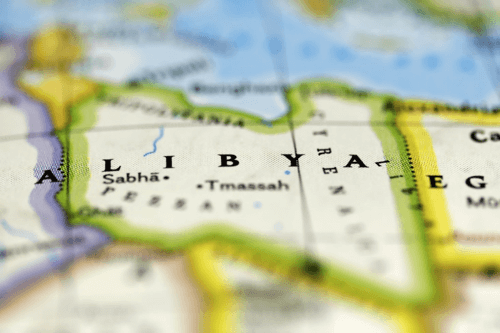
Oil Markets Move on Libya Crisis
COMMODITY NEWS – Oil prices moved up on Monday in Asia amid the intensifying tensions in the Middle East.
Iraq halted output at an oilfield, while Libya’s National Oil Corp declared force majeure. This move came after Commander Khalifa Haftar blocked exports at some ports.
Brent crude futures gained 74 cents or 1.1% to trade at $65.59. They earlier reached $66.00 per barrel, which was the highest on January 9.
US West Texas Intermediate futures were up 58 cents or 1% to trade at $59.12 per barrel. It previously rose to $59.73, which was the highest since January 10.
According to an analyst, if the disruptions endured, the oil market “is right to be reacting with a bullish tone.”
The analyst said that this highlighted the market’s dependence on a few critical regions with high geopolitical risks. He also added that the world market is in surplus, with plenty of stocks.
According to one NOC source, long periods of the shutdown could mean storage tanks would fill within days. Production would then slow to 72,000 barrels per day.
Over the weekend, world leaders met in Berlin to shore up a truce in Libya. German Chancellor Angela Merkel said a tentative ceasefire in Tripoli should become a permanent ceasefire.
World Leaders Hands Off in Libyan Civil War
Amid the commodities news, US Secretary-General Antonio Guterres said major powers are “fully committed” to a peaceful resolution in Libya.
World leaders promised not to meddle in Libya’s ongoing civil unrest. They have also pledged to uphold an UN arms embargo.
The tensions were between General Haftar and the UN-backed Government of National Accord (GNA).
However, the two sides did not meet at the summit, even if they were both present. Merkel said the other parties briefed and consulted the two sides.
Among others that attended were Russian President Vladimir Putin, French President Emmanuel Macron, UK Prime Minister Boris Johnson, and Turkish President Recep Tayyip Erdogan.
Libya has been under conflict since 2011 when an uprising ousted long-time strongman Muammar Gaddafi.
General Haftar’s Libyan National Army controls most of eastern Libya. In April last year, he attached the country’s rival GNA in Tripoli.
According to the UN, the fighting killed hundreds of people. It also displaced thousands more. Earlier this month, General Haftar and the GNA announced a truce.
However, both sides point fingers for the breaches of the agreement. Last week, attempts for a permanent ceasefire broke out.




